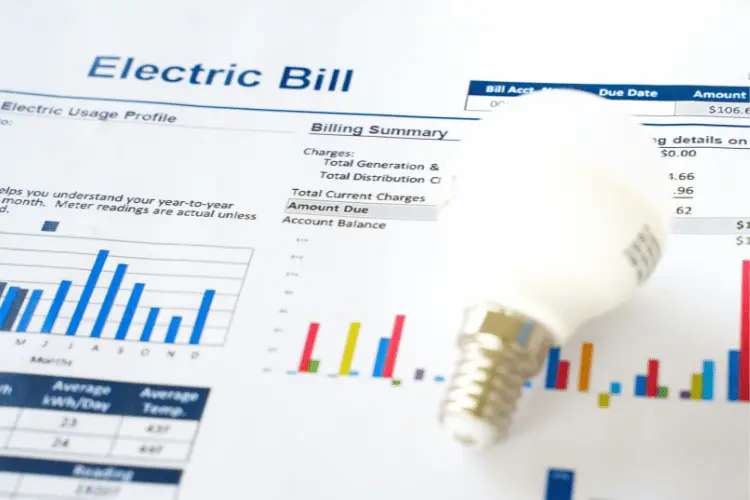
- By greenair-cy
- In Electricity
Navigating Electricity Price in Paphos
Understanding electricity prices in Paphos is more than just a matter of household budgeting; it’s a crucial aspect of daily life and business operations. In recent years, residents and business owners in Paphos have faced fluctuations in electricity costs, impacting everyone’s financial planning. This article aims to navigate these changes, offering a clearer picture of the electricity price landscape in Paphos.
Electricity prices are influenced by a complex web of factors, from global energy markets to local policies and environmental considerations. For consumers in Paphos, comprehending these factors is key to better managing their electricity expenses. By dissecting the components that make up the total cost, this article will provide an in-depth understanding of what drives electricity prices in the region.
As Paphos continues to grow and evolve, staying informed about electricity pricing is not just beneficial, but essential. Whether you’re running a business, managing a household, or planning future investments, understanding these dynamics will help you make more informed decisions and find potential areas for cost savings.
Historical Trends in Electricity Prices
Past Fluctuations and Influences
Electricity prices in Paphos have seen various changes over the years. Historically, these fluctuations have been influenced by global oil prices, policy changes, and technological advancements in the energy sector. Understanding these trends helps in predicting future patterns.
Impact of Economic and Policy Shifts
Economic developments and governmental energy policies have played significant roles in shaping the electricity pricing landscape. For instance, initiatives aimed at increasing renewable energy usage have had both direct and indirect impacts on pricing.
Growth of Renewable Energy Sources
The increasing incorporation of renewable energy sources in Cyprus has begun to influence electricity prices. While initially causing a slight increase in prices due to infrastructure development costs, in the long run, renewables are expected to stabilize and potentially lower costs.
Current Electricity Pricing Structure in Paphos
Breakdown of Current Prices
Today’s electricity prices in Paphos are the result of several components. These include the cost of energy production, transmission charges, taxes, and levies imposed by the government. Each component significantly impacts the final price paid by consumers.
Understanding Your Electricity Bill
For consumers, understanding the breakdown of their electricity bill is crucial. It not only aids in better financial planning but also helps in identifying areas where energy savings can be made.

Comparison with Renewable Energy Costs
Comparing current electricity prices with the costs of renewable energy installations, like solar panels, offers insights into long-term savings. Though the initial investment for renewables may be higher, they can offer lower cumulative costs over time.
| Component | Percentage of Total Cost |
| Energy Production Cost | 50% |
| Transmission and Distribution | 20% |
| Government Taxes and Levies | 15% |
| Renewable Energy Surcharge | 10% |
| Other Fees | 5% |
Factors Affecting Electricity Prices in Paphos
Global Energy Market Impact
International energy markets have a significant influence on local electricity prices. Fluctuations in oil and natural gas prices, for example, directly affect the cost of electricity generation in non-renewable power plants.
Local Demand and Supply Dynamics
Electricity prices in Paphos are also shaped by local factors such as demand-supply balance, the efficiency of the local grid, and the mix of energy sources used for electricity generation.
Environmental Policies and Regulations
Governmental policies aimed at reducing carbon emissions can influence electricity prices. These policies might include subsidies for renewable energy or taxes on carbon emissions, both of which can alter pricing structures.
| Factor | Impact on Electricity Prices |
| International Energy Market Prices | High |
| Local Energy Demand and Supply | Medium |
| Government Environmental Policies | Medium |
| Technological Advancements in Energy Sector | Medium |
| Regional Infrastructure and Grid Efficiency | Low |
Comparing Paphos with Other Regions
Regional Price Variations
Electricity prices can vary significantly from one region to another. Factors like local energy policies, availability of natural resources, and investment in renewable energy play a crucial role in these differences.
Paphos in the National Context
Within Cyprus, Paphos’s electricity prices might differ from other cities due to specific regional policies, infrastructure, and energy sources. Understanding these differences helps residents and businesses in Paphos to contextualize their energy expenses.
Tips for Managing and Reducing Electricity Costs
- Energy Efficiency Audit:
- Conducting an energy audit is a critical first step. It helps identify areas where you are using more electricity than necessary. Many utility companies offer free or low-cost audits, providing recommendations for improvements.
- Utilize Energy-Efficient Appliances:
- Invest in energy-efficient appliances. Look for the Energy Star label when purchasing new appliances. These products use less electricity for the same level of performance.
- Implement Smart Home Technologies:
- Smart thermostats can significantly reduce heating and cooling costs by adjusting temperatures based on your schedule and preferences. Smart lighting solutions, such as LED bulbs and automated systems, also help in reducing electricity usage.

- Optimize Air Conditioning:
- Air conditioners consume a considerable amount of electricity. Regular maintenance, such as cleaning filters and ensuring proper insulation, can enhance efficiency. Also, setting the thermostat a few degrees higher can lead to substantial savings.
- Embrace Solar Energy:
- Paphos receives sufficient sunlight, making solar panels an excellent investment for long-term savings. Solar energy can either supplement your electricity needs or completely fulfill them, depending on the system size.
- Water Heating Efficiency:
- Water heating is another significant electricity consumer. Consider lowering the water heater’s temperature setting and insulating hot water pipes. Solar water heaters can also be a cost-effective solution.
- Reduce ‘Phantom’ Energy Use:
- Many devices consume electricity even when they are turned off, known as ‘phantom’ energy use. Unplugging devices when not in use or using power strips to turn off multiple devices can reduce this unnecessary consumption.
- Behavioral Changes:
- Simple behavioral changes can have a big impact. Turning off lights when leaving a room, using natural light during the day, and reducing the use of high-energy appliances can lead to noticeable savings.
- Energy-Efficient Building Design:
- For new constructions or renovations, consider energy-efficient designs. Proper insulation, energy-efficient windows, and strategically placed trees for shade can reduce the need for heating and cooling.
- Regular Monitoring and Review:
- Regularly monitor your electricity bills and consumption patterns. Understanding your usage can help you identify trends and make informed decisions to reduce consumption.
The Future of Electricity Prices in Paphos
Technological Innovations: The progress in renewable energy technologies is one of the most influential factors. With advancements in solar, wind, and energy storage technologies, the cost of producing renewable energy continues to decrease. Paphos, with its abundant sunlight, is in a prime position to benefit from these advancements. As more homes and businesses adopt solar panels, we can anticipate a significant shift in the energy market, potentially leading to lower electricity prices due to reduced reliance on imported fuels.
Government Policies and Incentives: The Cypriot government’s stance on renewable energy and sustainability will play a crucial role in shaping the electricity market. Policies promoting the use of renewable energy, such as subsidies for solar panel installations or incentives for energy-efficient appliances, can encourage wider adoption of green technologies. This shift could stabilize or even lower electricity prices over time as the nation moves towards more sustainable and locally generated energy sources.
Market Trends and Consumer Behavior: The demand for green and sustainable living is rising, not just in Paphos but globally. As consumers become more energy-conscious, there’s an increasing shift towards energy-saving practices and technologies. This evolving consumer behavior, coupled with a growing preference for renewable over traditional energy sources, might lead to a more competitive energy market with diverse pricing models, including potentially lower prices for green energy solutions.
Infrastructure Development: The modernization of energy infrastructure, such as the development of smarter, more efficient power grids, will also influence future electricity prices. These advancements could lead to more efficient distribution systems, reducing energy loss and costs associated with power transmission and distribution.
In summary, the future of electricity prices in Paphos appears to be leaning towards a more sustainable and potentially cost-effective paradigm. Driven by technological innovation, supportive government policies, changing market trends, and infrastructure developments, there’s a tangible shift underway. This shift not only promises a more environmentally friendly approach to energy consumption but also holds the potential for more stable and possibly lower electricity prices in the long term.
Conclusion
Navigating the electricity price landscape in Paphos requires an understanding of various influencing factors and trends. From historical shifts to current pricing structures and future predictions, consumers equipped with this knowledge can make more informed decisions.
Considering the potential for renewable energy and energy efficiency measures, there are opportunities for cost savings and environmental benefits. Staying informed and adaptable in this dynamic energy market is key for residents and businesses in Paphos.
As we look to the future, it’s clear that sustainable energy solutions will play a pivotal role in shaping electricity prices. Embracing these changes and technologies, with the support of companies like Green Air, can lead to a more sustainable and cost-effective energy future for all in Paphos.
